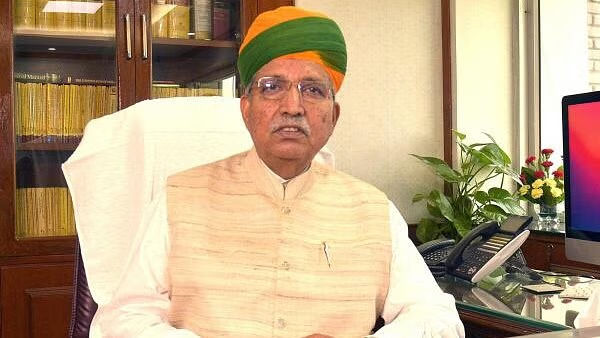Annamalai framed ‘One Nation, One Election’ as an economic necessity, claiming that frequent elections disrupt governance and burden the economy.
BENGALURU: Citing the DMK’s decision to replace the Rupee symbol with the Tamil letter ‘roo’ in the Tamil Nadu budget, Tamil Nadu BJP president K Annamalai, hit back at the party, saying this is specifically why ‘One Nation, One Election’ (ONOE) is needed.
He argued that if ‘One Nation, One Election’ is implemented, regional parties, which remain excessively regional in their approach, will be compelled to think on a national scale. He was addressing students at Jain University in Bengaluru’s Jayanagar on Friday at an event on ‘Youth for One Nation, One Election’.
Addressing students, Annamalai, a former IPS officer, stressed that if simultaneous elections to the Lok Sabha and assemblies are held, regional parties will be forced to think beyond narrow political agendas and focus on national progress.
He emphasised that India had successfully conducted simultaneous elections between 1952 and 1967, ensuring stable governance, and blamed frequent elections for policy paralysis and political instability.
“One Nation, One Election is not just about convenience — it is about forcing political parties to rise above regional rhetoric and focus on India as a whole while also forcing National parties to think for each region,” he said.
Citing historical examples, Annamalai spoke about the evolution of democracy, referencing Winston Churchill’s remark that “democracy is the worst form of government, except for all the others.” He warned that democracy fails when citizens disengage, highlighting declining youth participation in elections a serious concern.
“Many young people today do not even see their elected representatives. The only time they interact with democracy is once in five years, if at all. This disengagement weakens our system,” he said, urging students to take a more active role in shaping the country’s future.
Annamalai framed ‘One Nation, One Election’ as an economic necessity, claiming that frequent elections disrupt governance and burden the economy. He cited estimates suggesting that simultaneous elections could boost India’s GDP by 1.5%, adding Rs 4.5 lakh crore to the economy.
He criticised the recurring cycle of elections and the continuous enforcement of the Model Code of Conduct, which he said paralyses governments from taking key decisions. “Every few months, some part of the country is in election mode. This constant cycle of restrictions hampers development and delays major policies,” he said.
While acknowledging that ‘One Nation, One Election’ cannot be implemented overnight, he said discussions are progressing toward a 2034 rollout. “It is a long-term, well-thought-out democratic reform,” he said.



